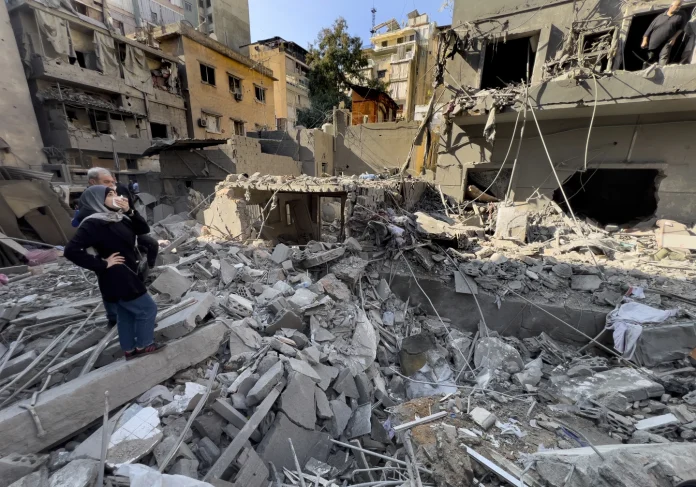Iran’s supreme leader said on Monday that Israeli leaders should be given death sentences rather than arrest warrants, as the Israeli Air Force launched a series of intense airstrikes on the southern suburbs of Beirut.
Death for Israeli PM, Ayatollah Ali Khamenei urges
Ayatollah Ali Khamenei commented on the International Criminal Court’s decision on Thursday to issue arrest warrants for Israeli Prime Minister Benjamin Netanyahu, his former defence chief and a Hamas leader, Ibrahim al-Masri. Khamenei said, referring to the Israeli leaders:
“They issued an arrest warrant, that’s not enough… Death sentence must be issued for these criminal leaders.”
In their decision, the ICC judges said there was reason to believe that Netanyahu and Yoav Gallant were responsible for acts such as murder, persecution and starvation as weapons of war as part of a “widespread and systematic attack on the civilian population of Gaza.”
The decision sparked outrage in Israel, which called it shameful and absurd. Gazans expressed hope that it would help end the violence and bring perpetrators of war crimes to justice.
Israel reports heavy damage after rocket fire from Lebanon
A rocket fired from Lebanon caused severe damage to an Israeli settlement in northern Israel, local media reported on Tuesday.
Israel’s Channel 12 reported that five rockets were fired by Hezbollah from Lebanon into the Upper Galilee in northern Israel.
According to the channel, the rocket hit a building in the settlement of Kiryat Shmona, causing heavy damage. No injuries were reported.
The attack came as Israel’s security cabinet is due to meet Tuesday to vote on a US-backed ceasefire proposal with Lebanon. Israeli media reported early Monday that a ceasefire agreement between Israel and Hezbollah would be announced within two days.
Lebanese MP Qassem Hashem also said on Monday that a ceasefire agreement between Hezbollah and Israel was nearing completion and could be announced within the next 36 hours if the talks went smoothly. Hashem told Anadolu:
“The atmosphere is positive, and cease-fire discussions have reached an advanced stage. It’s only a matter of hours before an agreement is finalized and announced if progress continues as expected.”
Israel has stepped up its airstrikes in Lebanon against what it claims are Hezbollah targets as part of a year-long war against the Lebanese group since the start of the Gaza war last year.
Since October last year, Israeli attacks in Lebanon have killed more than 3,760 people, injured some 15,700 and displaced more than a million, according to Lebanese health authorities. On October 1 this year, Israel escalated the conflict by launching a ground offensive into southern Lebanon.
Israeli strikes on Lebanon escalate
On Tuesday, the Israeli Air Force launched a series of intense airstrikes on the southern suburbs of Beirut (Dahiya), sending thick puffs of smoke billowing over the targets after the raids.
Before the airstrikes, Israeli army spokesman Avichay Adraee used maps of the six localities of Burj Al-Barajneh and Tahwitat Al-Ghadir on TV channel X to warn residents to evacuate their homes ahead of the bombings, but the strikes came just minutes later, leaving no time to flee.
The Israeli army also raided Zebqin, Majdal Zoun, Khiyam, and Rachaya Al-Foukhar in southern Lebanon.
The standoff between the Israeli military and Hezbollah has been ongoing in Khiam for more than three days now, with the Israeli army still unable to deploy or establish any points in the town.
Meanwhile, Israeli media reports that sirens are sounding in Al-Manar in the Galilee Panhandle region and areas of the Western Galilee, noting that Hezbollah strikes have caused “significant damage” in the northern regions.
